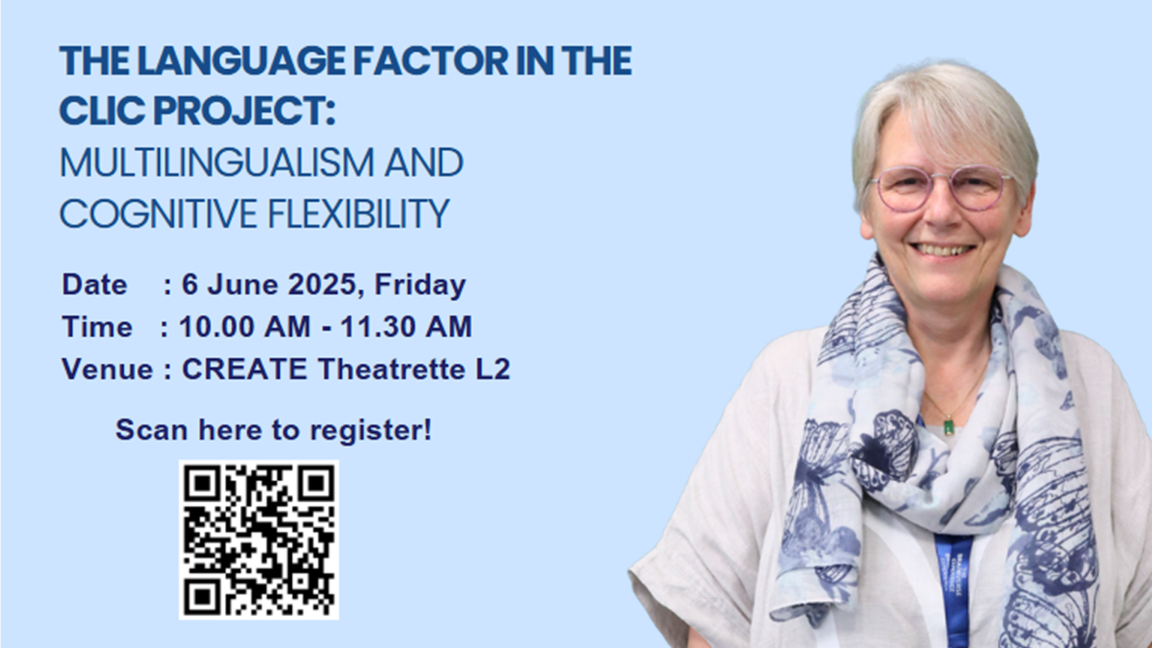
The language factor in the CLIC project: Multilingualism and cognitive flexibility
Date/Time
Date(s) - June 6, 2025
10:00 AM - 11:30 AM
Date/Time
Date(s) - June 6, 2025
10:00 am - 11:30 am
Location
CREATE Tower
Categories No Categories

Date: Friday, 6 June 2025
Time: 2pm – 3pm
10:00-10:30: Registration
10:35-10:50: Introduction to CLIC by Prof Annabel
10:50-11:20: Talk by Prof Henriette
11:20-11:30: Q&A
Venue: CREATE Theatrette L2, CREATE Tower
Register on this page or click the button on the sidebar.
Abstract: For many years now, researchers have been trying to understand the relationship between multilingualism and executive functions. More specifically, they have been trying to show that being bi- or multilingual may come with cognitive advantages. In this talk, Prof Hendriks will present some of the history concerning the above existing research endeavours, its pitfalls and its struggles to find systematical results. Prof Hendriks will then indicate how the field has evolved more recently, in preparation for a discussion on how we are trying to tackle these research questions as part of the research in the Centre for Lifelong Learning and Individualised Cognition (CLIC). Prof Hendriks will end the presentation by presenting some initial results. The results will be based on a study with 400 young adult participants (mainly university students) from Singapore, a multilingual country. Participants answered a large set of questionnaires on various topics related to psycho-societal measures such as need for closure, perceived social support, and multilingualism, and participated in a similarly large set of executive function tasks.
About the speaker: Prof Henriëtte HENDRIKS (Principal Investigator and Deputy Director on the CLIC project) is Professor of Language Acquisition and Cognition at the University of Cambridge. Her main research area is cognitive linguistics, and she investigates the relationship between language and cognition through work in child first and adult second language acquisition. Prof Hendriks studied Sinology at Leiden University, and then started her career at the Max-Planck Institute for Psycholinguistics where she worked as a coordinator on three different projects; two DFG projects on child first language acquisition (PI Dr Maya Hickmann), and an ESF funded project on adult second language acquisition (The Structure of Learner Varieties, PI Prof Wolfgang Klein). In 1998 she moved to the University of Cambridge, where she has been lecturing and researching first and second language acquisition, discourse analysis, and linguistic relativity. During her time in Cambridge, she was PI on the EF-Cambridge Research Unit grant, Co-I on a large number of other grants (European and UK based). Currently, she is a PI and Deputy Director of the Centre for Lifelong Learning and Individualised Cognition (CLIC). From 1 Jan 2025, she forms the new CARES management structure as the Director of Education and Skills.
